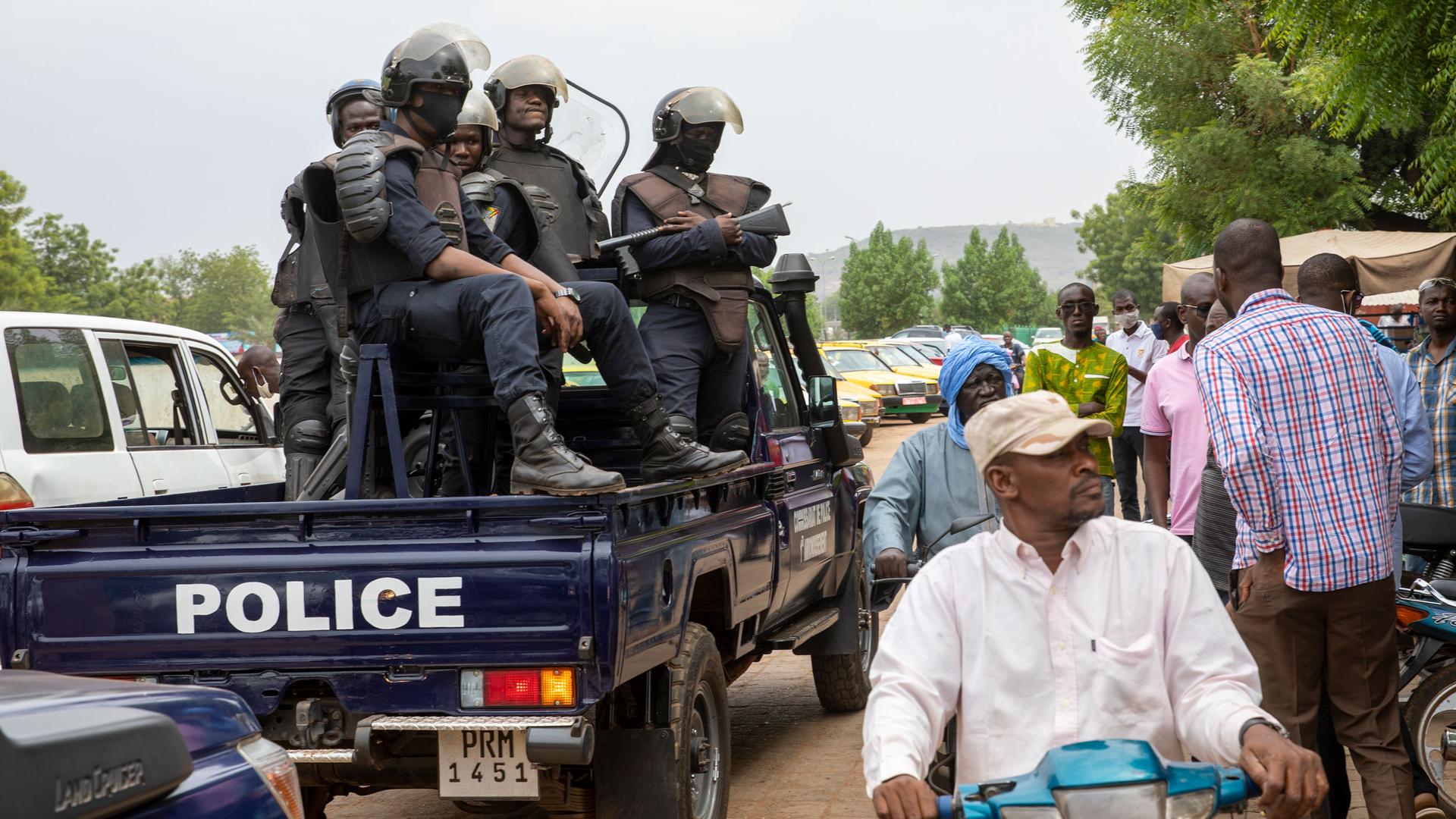Mali’s coup leader wrests back control of the government
Malian police gather outside the Bourse du Travail where striking workers gathered to protest the arrest of President Bah N’Daw and Prime Minister Moctar Ouane by military personnel in Bamako, Mali, May 25, 2021.
Mali’s former coup leader Assimi Goita, who has pledged to go ahead with holding new elections in 2022, took control of the country again Tuesday after firing the president and prime minister of the transitional government.
Goita’s display of force casts doubt on whether the vote will go ahead without significant interference by the junta that overthrew the last democratically elected president.
The move also raised concerns that the new political unrest could further destabilize efforts to control the West African country’s long-running Islamic insurgency. The United Nations now spends some $1.2 billion annually on a peacekeeping mission in Mali.
The military’s announcement on the state broadcaster came a day after President Bah N’Daw and Prime Minister Moctar Ouane were arrested by soldiers and brought to the military headquarters in Kati, about 9 miles outside the capital. Both men remained in detention Tuesday.
Their arrests prompted an outcry by the international community, which put out a strongly worded statement warning Mali’s military leaders that their actions could undermine global support for the transitional government. The West African regional bloc known as ECOWAS was sending a delegation to Bamako on Tuesday afternoon as the political crisis escalated.
Goita has served as Mali’s vice president since the transitional government was formed last September in the wake of his coup d’etat despite initial calls from the international community for an entirely civilian-led transition.
In announcing the removal of the president and prime minister of the transitional government, the military also said that it would be relieving others from their duties including “everyone implicated in the situation.”
Still, the military insisted: “The transition is following its normal course and elections will be held as anticipated in 2022.” Following international pressure last year the junta had promised to organize that vote by next February, 18 months after the coup d’etat shook the country.
The overthrow of democratically elected President Ibrahim Boubacar Keita came amid mounting military casualties in the fight against Islamic militants linked to al-Qaida and ISIS.
The extremists first took control of major towns in northern Mali after the 2012 coup. Only a 2013 military intervention led by the former colonial power France pushed extremists out of those towns. France and a UN force have continued to battle the extremist rebels, who operate in rural areas and regularly attack roads and cities.
By Baba Ahmed and Krista Larson/AP
Our coverage reaches millions each week, but only a small fraction of listeners contribute to sustain our program. We still need 224 more people to donate $100 or $10/monthly to unlock our $67,000 match. Will you help us get there today?
